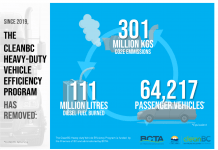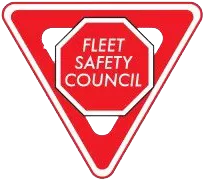Marijuana Concerns: Is The Trucking Industry Going to Pot?
The American Transportation Research Institute (ATRI) has issued a report studying the impacts of marijuana legalization on the trucking industry. There are concerns that current drug testing, along with the spreading legalization of marijuana in the U.S., may be contributing to the truck driver shortage.
The use of recreational marijuana is now legalized in 23 U.S. states. 41.4% of American truck drivers now live in states where marijuana is legalized.
However, federal regulations do not allow Commercial Driver’s Licence holders to use marijuana, as it is identified as a Schedule 1 drug.
Analyzing marijuana’s impact on the trucking industry was a top priority of the ATRI Research Advisory Committee (RAC) in 2022. The report covers several critical topics relating to state-level marijuana legalization, including:
• a review of the latest demographic trends in marijuana legalization;
• an overview of research and data related to highway safety and marijuana use;
• a summary of the workforce and hiring implications for the trucking industry; and
• an analysis of publicly available CDL driver drug test data.
The data collected for the report indicates that drivers and carriers feel that the current drug testing does not allow for indicators of marijuana impairment.
The report also includes industry surveys that provide insight into the motor carrier and truck driver perspectives on the consequences of marijuana legalization and current drug screening regulations.
The Minnesota Trucking Association, John Haulsden, shared his sobering concerns with The ATRI. “Minnesota recently joined the growing list of states legalizing recreational marijuana. This action underscores the critical need for tools to effectively determine marijuana impairment by current and prospective employees. As an industry committed to workplace and roadway safety, we owe it to ourselves and our families to make sure we can screen to maintain a clean and sober workforce.”
It is noteworthy that marijuana has been legal in Canada since October 2018. Regardless, U.S. and Canadian laws are the same; it is illegal to operate a vehicle while impaired by cannabis.
The ATRI study discusses the two pathways the federal government can take in response to advancing legalization efforts.
The first pathway is maintaining the current prohibition policy, where marijuana remains a Schedule I drug. This would continue the trend of removing thousands of drivers annually from the industry through positive tests for past marijuana use.
The second pathway would be a scenario where the federal government eases restrictions and possibly removes marijuana from the Schedule I designation. This would be a significant deviation from current practice.
The ATRI report suggests that protections must be in place for employers in safety-sensitive industries before any federal legalization action. These include the development of a nationally recognized marijuana impairment test and impairment standards, as well as provisions that protect a carrier’s ability to screen employees for drug use.
The American Transportation Research Institute (ATRI) report also raises concerns that current legislation in the U.S. may be contributing to the shortage of truck drivers.
Traces of alcohol are not noticeable for days or even hours after consumption. But marijuana can be detected for up to 30 days after consumption. This increases the likelihood of a positive test.
The clear takeaway is that the trucking industry is not “going to pot”. But it is obvious that consensus needs to be found within the trucking industry and with lawmakers on how to navigate the issues that marijuana is causing. As always, safety is the number one concern.






















